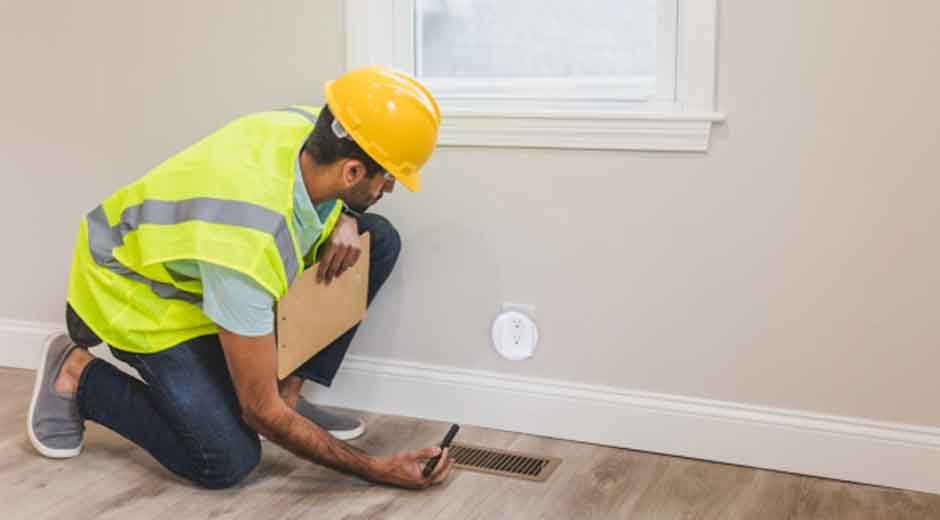Your home’s HVAC system works year-round to keep temperatures steady and the air flowing. When it works well, it’s easy to forget about. But when something feels off—even slightly—it’s worth paying attention.
Many heating and cooling problems start small. A vent may sound louder than usual. A room might take longer to cool. These minor symptoms often go unnoticed until the system fails or energy bills jump. The longer they go unaddressed, the more likely they are to lead to major repairs or early replacement.
This article covers common early signs that something’s wrong with your HVAC system. These signs may seem minor at first, but catching them early can save time, money, and frustration down the road.
Inconsistent Airflow
Weak or uneven airflow is easy to dismiss at first. Maybe one room feels cooler than the others, or a vent seems less powerful than it used to. But over time, this can affect your comfort and increase your energy use.
Inconsistent airflow can be caused by a clogged filter, a blocked duct, or a failing blower motor. It could also signal that your system is struggling to push air through the ducts. Either way, it’s worth looking into.
Addressing airflow problems early can improve system efficiency and keep your home feeling consistent from room to room. Waiting too long can lead to overheating or short cycling, which puts more stress on the system.
Odd Sounds or Vibrations
Hearing strange sounds from your HVAC system is one of the clearest signs that something needs attention. You might notice clanking, buzzing, banging, or a low hum that’s louder than normal. These noises usually come from parts that are loose, worn, or damaged.
One common concern is an AC making noise during operation. Whether it’s a sudden rattle or a consistent buzz, these sounds often point to airflow restrictions or internal issues. In some cases, the fan blades might be hitting something, or the motor could be wearing out.
When left alone, a noisy unit can suffer more wear and tear. Something as simple as a loose screw or dirty fan can lead to more costly repairs if not fixed early. If the noise gets worse or changes in tone, it’s time to call in a technician.
Unusual vibrations are also worth noting. If the system seems to shake slightly or hum in a new way, it might be working harder than it should. These early red flags can help you avoid complete system failure later on.
Short Cycling or Long Run Times
Short cycling happens when your HVAC system turns on and off in rapid bursts. It doesn’t run long enough to cool or heat your home properly. On the other hand, if the system runs too long without shutting off, it may be struggling to reach the set temperature.
Both problems are signs that something isn’t right. Short cycling often points to thermostat issues, poor airflow, or low refrigerant. Long run times could mean the system is undersized, the coils are dirty, or the filter is clogged.
These patterns are more than just a small annoyance. They lead to extra wear on the equipment, which shortens its lifespan. If you notice your system behaving this way, a quick check-up can help find the cause before it leads to a more expensive breakdown.
Higher-Than-Usual Energy Bills
If your energy costs suddenly spike without a clear reason, your HVAC system could be the cause. Small problems like clogged filters, dirty coils, or leaky ductwork can force the system to work harder to do the same job.
Even if your home still feels comfortable, rising bills are a sign that something isn’t running as efficiently as it should. These changes are often gradual, so comparing your current bill to the same time last year can help spot the difference.
Tuning up the system, fixing airflow issues, or cleaning components can often bring costs back down. It’s a smart step to take before assuming your only option is to upgrade your equipment.
Odd Smells When the System Turns On
When your system kicks on and you smell something off, don’t ignore it. A burning smell might just be dust heating up, but if it sticks around, it could mean something more serious, like a wiring problem or an overheating part.
Musty or damp odors could come from mold inside the ducts or near the unit. This affects not only comfort but also air quality. Breathing in mold spores over time can lead to health problems, especially for people with allergies or asthma.
Finding the source of the smell early can help prevent bigger issues, whether it’s a cleaning problem or a mechanical one. If the smell comes back after changing the filter, it’s time to call a technician.
Lack of Routine Maintenance
Skipping regular maintenance is one of the biggest reasons small issues turn into major repairs. A basic inspection once a year gives a technician the chance to catch problems before they grow.
During a visit, they can clean the coils, check refrigerant levels, test the thermostat, and inspect moving parts. These small tasks make a big difference in how long your system lasts and how well it runs.
Even if nothing seems wrong, yearly maintenance keeps everything working as it should. It also gives you peace of mind heading into hot or cold weather.
HVAC problems rarely appear out of nowhere. Most of the time, your system gives you signs, like strange sounds, higher bills, or uneven airflow. Catching those signs early and acting on them can keep your system in better shape and help you avoid costly repairs later on. A little attention now can save a lot of trouble down the line.










